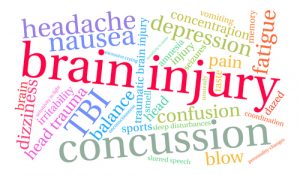 No two brain injuries are the same, but a traumatic brain injury usually falls into one of three categories. The diagnosis of a brain injury, however, is often delayed or overlooked completely. Diagnostic tests are typically not effective in identifying a brain injury. Quite often, symptoms appear later, begin subtly, and are only recognized when the victim’s behavior changes or abilities are affected.
No two brain injuries are the same, but a traumatic brain injury usually falls into one of three categories. The diagnosis of a brain injury, however, is often delayed or overlooked completely. Diagnostic tests are typically not effective in identifying a brain injury. Quite often, symptoms appear later, begin subtly, and are only recognized when the victim’s behavior changes or abilities are affected.
Types of TBIs
When there is a car accident, fall, sports collision, or other event that leads to noticeable physical injuries, head trauma can sometimes be overlooked while other health concerns are addressed. Unfortunately, traumatic brain injuries are challenging enough to recover from even when properly diagnosed. Misdiagnosis of this serious injury can leave a person susceptible to further head trauma and a longer recovery period once officially diagnosed.
There are three basic categories of traumatic brain injuries:
- Mild brain injury: More commonly known as a concussion, a mild brain injury may or may not lead to a loss of consciousness. If someone does pass out, it usually lasts only seconds or minutes. In situations like this, medical tests may not accurately diagnose a brain injury. Careful observation of the patient and testing of mental and physical functions aid in confirming the diagnosis.
- Moderate brain injury: When the victim loses consciousness, sometimes for hours, they are usually classified as having a moderate brain injury. Often, the physical, behavioral, and cognitive complications of this TBI are permanent. For some patients, side effects of the injury can be months-long and require special therapy and other medical treatment to conquer.
- Severe brain injury: When a blow to the head fractures or breaks the skull, or penetrates the skull and brain, this is classified as a severe brain injury. This type of TBI is life-threatening and can change a person’s abilities and overall well-being, permanently.
An open brain injury – such as a bullet to the head – is not likely to be misdiagnosed. A closed traumatic brain injury, however, can be missed if the doctor is not looking for the symptoms of a TBI. For example, whiplash can lead to a mild brain injury that rarely shows up on a CT scan or MRI, making it more likely to be overlooked, but any jarring movement that jostles the brain in the skull can lead to a TBI.
Late Diagnosis of Traumatic Brain Injuries
When a traumatic brain injury is missed, the condition often makes itself known in the victim’s actions. The person may be easily distracted, unable to pay attention, have difficulty managing time, and blank on their responsibilities. Behavior could become erratic and they may be moody, hostile, or impulsive.
Other physical symptoms like nausea or headaches, dizziness or fatigue may be explained away, when they are signaling that something isn’t right.
Evaluation and diagnosis are critical when it comes to head injuries of all degrees. A person’s life can be altered forever without proper treatment and recovery time. If you have been misdiagnosed or your TBI was overlooked, you may have a case of medical negligence or medical malpractice. Contact Thurswell Law for a free consultation with one of our experienced, knowledgeable, and successful attorneys. We do not charge any fees unless you collect. Call (248) 354-2222 today.







